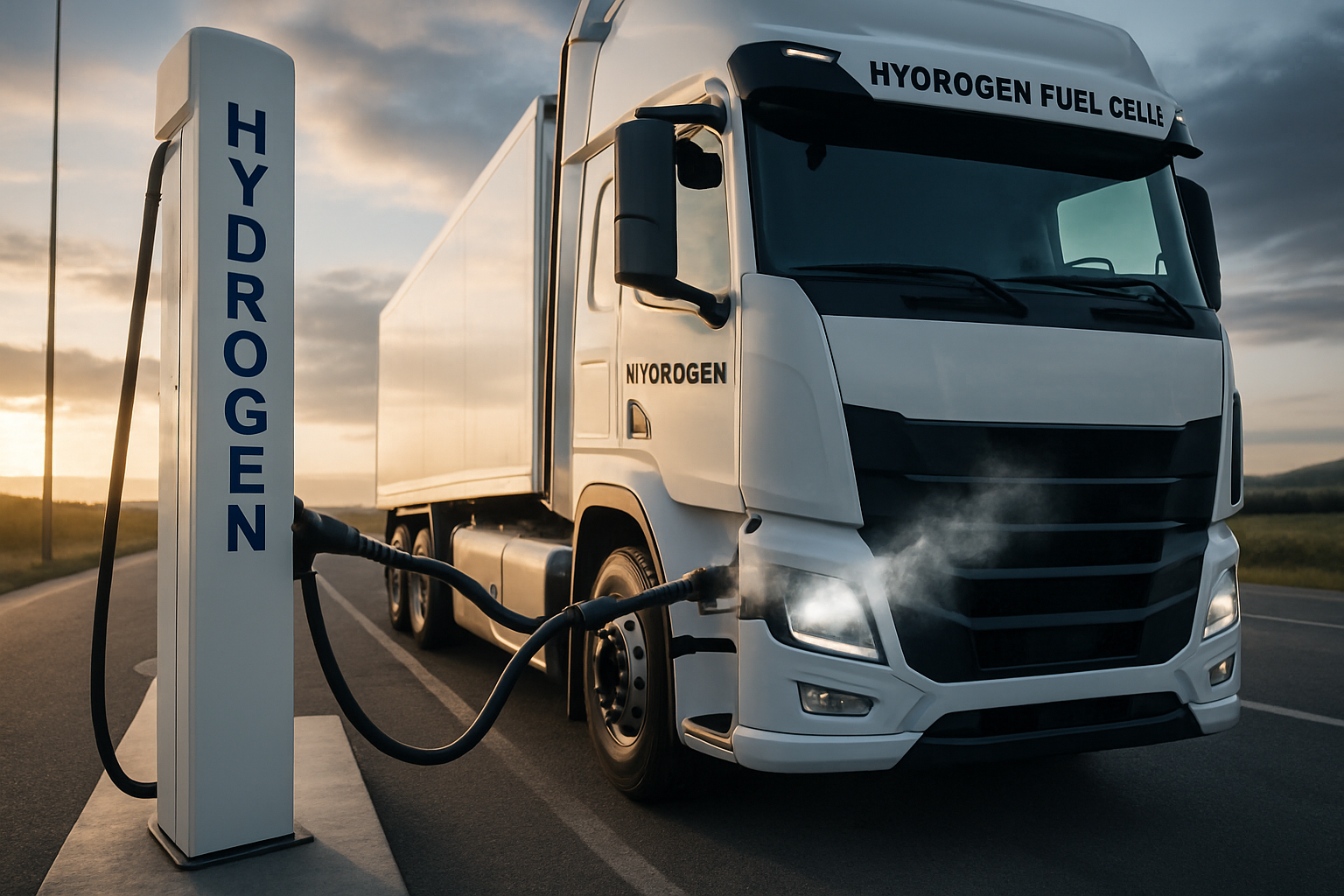Hydrogen Fuel Cells: The Quiet Revolution in Long-Haul Trucking
The roar of diesel engines has long been the soundtrack of highways across the globe. But a silent transformation is underway in the world of long-haul trucking. Hydrogen fuel cell technology, once relegated to the realm of science fiction, is now poised to revolutionize the way goods are transported over vast distances. This groundbreaking shift promises not only to slash emissions but also to redefine the economics and logistics of the trucking industry.

The Science Behind Hydrogen Fuel Cells
At the heart of hydrogen fuel cell technology lies a remarkably elegant process. Hydrogen gas, stored in high-pressure tanks, is fed into a fuel cell where it combines with oxygen from the air. This chemical reaction produces electricity, which powers the truck’s electric motors, with water vapor as the only byproduct. The process is silent, efficient, and completely emissions-free at the point of use.
The fuel cells themselves are marvels of engineering, utilizing precious metals like platinum as catalysts to facilitate the reaction. Recent advancements have dramatically reduced the amount of platinum required, making fuel cells increasingly cost-effective. Moreover, the high energy density of hydrogen means that fuel cell trucks can achieve ranges comparable to their diesel counterparts, a crucial factor for long-haul operations.
Infrastructure: The Key to Widespread Adoption
While the technology itself is promising, the success of hydrogen fuel cells in trucking hinges on the development of a robust refueling infrastructure. Unlike battery-electric vehicles, which can potentially charge anywhere there’s an electrical outlet, hydrogen fuel cell vehicles require specialized refueling stations. This presents both a challenge and an opportunity.
Several countries and companies are investing heavily in hydrogen infrastructure along major trucking routes. In Europe, the Hydrogen Corridor project aims to establish a network of hydrogen stations connecting major ports and industrial hubs. Similarly, in North America, partnerships between truck manufacturers, energy companies, and governments are working to create hydrogen highways that will enable coast-to-coast travel for fuel cell trucks.
Economic Implications for the Trucking Industry
The shift to hydrogen fuel cells could significantly alter the economic landscape of the trucking industry. While the initial cost of fuel cell trucks is currently higher than that of diesel trucks, the gap is narrowing rapidly. More importantly, the operational costs of hydrogen-powered trucks are expected to be lower in the long run.
Fuel efficiency, reduced maintenance needs, and potential government incentives for clean technologies all contribute to a compelling economic case for hydrogen. Additionally, as more stringent emissions regulations come into effect in many parts of the world, hydrogen fuel cell trucks offer a way for trucking companies to future-proof their fleets.
Environmental Impact and Sustainability
The environmental benefits of hydrogen fuel cell trucks are significant. With zero tailpipe emissions, these vehicles can dramatically reduce the carbon footprint of the trucking industry, which currently accounts for a substantial portion of transportation-related greenhouse gas emissions. However, it’s important to consider the entire lifecycle of hydrogen production.
Currently, most hydrogen is produced from natural gas through a process called steam methane reforming, which does generate carbon emissions. However, there’s a growing push towards green hydrogen, produced through electrolysis powered by renewable energy sources like wind and solar. As the production of green hydrogen scales up, the environmental benefits of fuel cell trucks will become even more pronounced.
Challenges and Future Outlook
Despite its promise, hydrogen fuel cell technology in trucking faces several challenges. The high cost of fuel cells, the need for extensive infrastructure development, and competition from battery-electric trucks are all significant hurdles. Safety concerns related to the storage and handling of hydrogen also need to be addressed, although significant progress has been made in this area.
Looking ahead, the future of hydrogen fuel cells in long-haul trucking appears bright. Major truck manufacturers are investing heavily in the technology, with several models already in pilot programs or early commercial deployment. As production scales up and technology improves, costs are expected to decrease, making fuel cell trucks increasingly competitive.
The quiet revolution of hydrogen fuel cells in long-haul trucking is gaining momentum. As this technology matures and infrastructure expands, we may soon see a dramatic shift in the way goods are transported across continents. The vision of highways humming with clean, efficient, hydrogen-powered trucks is no longer a distant dream but an emerging reality that promises to reshape the landscape of global logistics.






